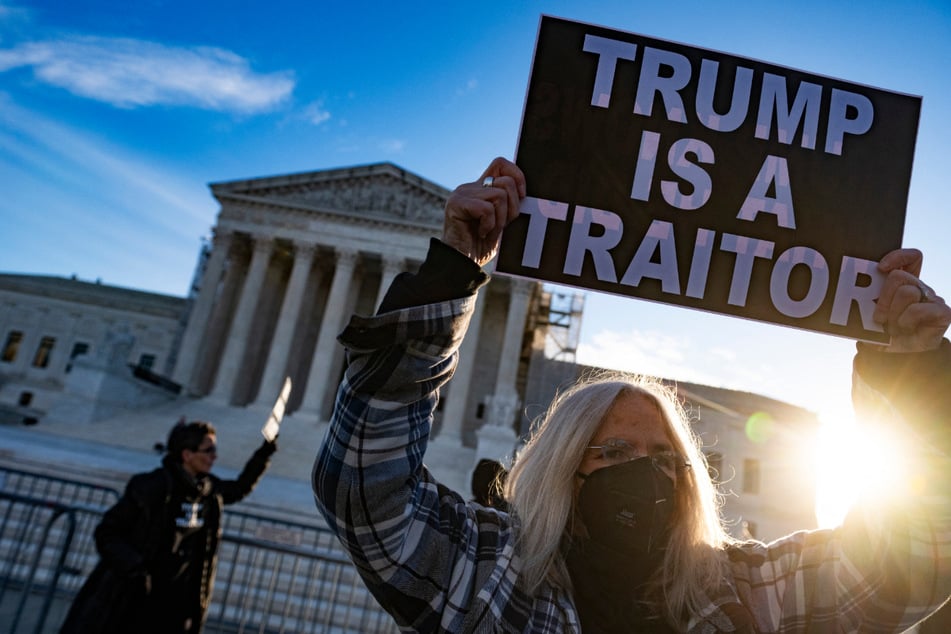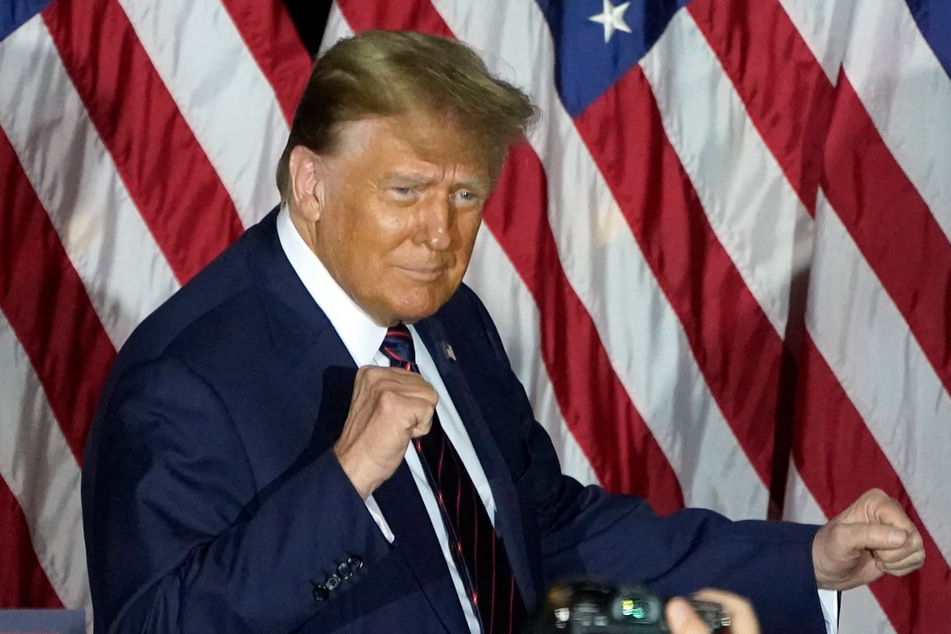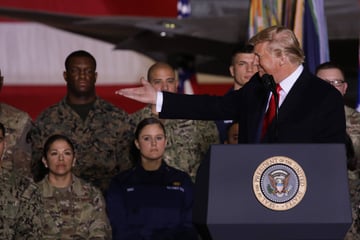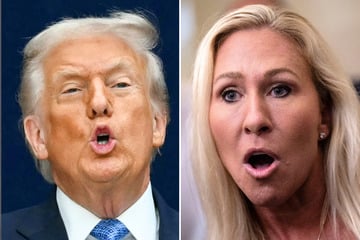Supreme Court justices show doubts during crucial hearing on Trump ballot ban
Washington DC - The US Supreme Court took stage in the 2024 White House race on Thursday as it heard arguments on whether Donald Trump should be barred from running again for president.

The nation's highest court will rule on arguably the most consequential election law case since it halted the Florida vote recount in 2000 with Republican George W. Bush narrowly leading Democrat Al Gore.
The question before the nine justices is whether Trump is ineligible to appear on the Republican presidential primary ballot in Colorado because he engaged in an insurrection – the January 6, 2021, assault on the Capitol by his supporters.
Section 3 of the 14th Amendment bars anyone from holding federal elected office if they engaged in "insurrection or rebellion" after once pledging to support and defend the Constitution.
Trump appealed to the Supreme Court to throw out the Colorado ruling and similar bids in other states to keep him off the ballot, and in a hearing that lasted for over two hours, there were already signs that he might succeed.
The ex-president's attorney, Jonathan Mitchell, attacked the issue from multiple angles. First, he argued that Section 3 does not specifically include the presidency among the public offices; it bans insurrectionists from before moving on to deny that Trump ever engaged in insurrection and contesting Colorado's authority to invoke the clause in the first place.
That particular line of reasoning seemed to make the biggest impression on the justices, who seemed eager to stay focused on procedural matters rather than the facts of January 6.
Colorado lawyers met with probing questions by justices

On the other hand, lawyers representing Colorado's secretary of state and the group of voters who brought the case against Trump insisted that the Republican did engage in insurrection and that ruling against the ballot ban would amount to creating an exception for him.
When asked by Chief Justice John Roberts whether applying the 14th Amendment would open the door to partisan ballot bans in every state, attorney Jason Murray responded that the Capitol attack was exceptional.
"There is a reason Section 3 has been dormant for 150 years, and it's because we haven't seen anything like January 6 since Reconstruction," he said.
"Insurrection against the constitution is something extraordinary."
However, even liberal justices like Elena Kagan expressed some skepticism towards the case and the notion that any single state should be allowed to decide who runs for president.
With the fate of the 2024 presidential election - and a potential rematch between Trump and Joe Biden - hanging in the balance, the Supreme Court will be under significant pressure to issue a ruling as soon as possible.
Cover photo: Roberto SCHMIDT / AFP

